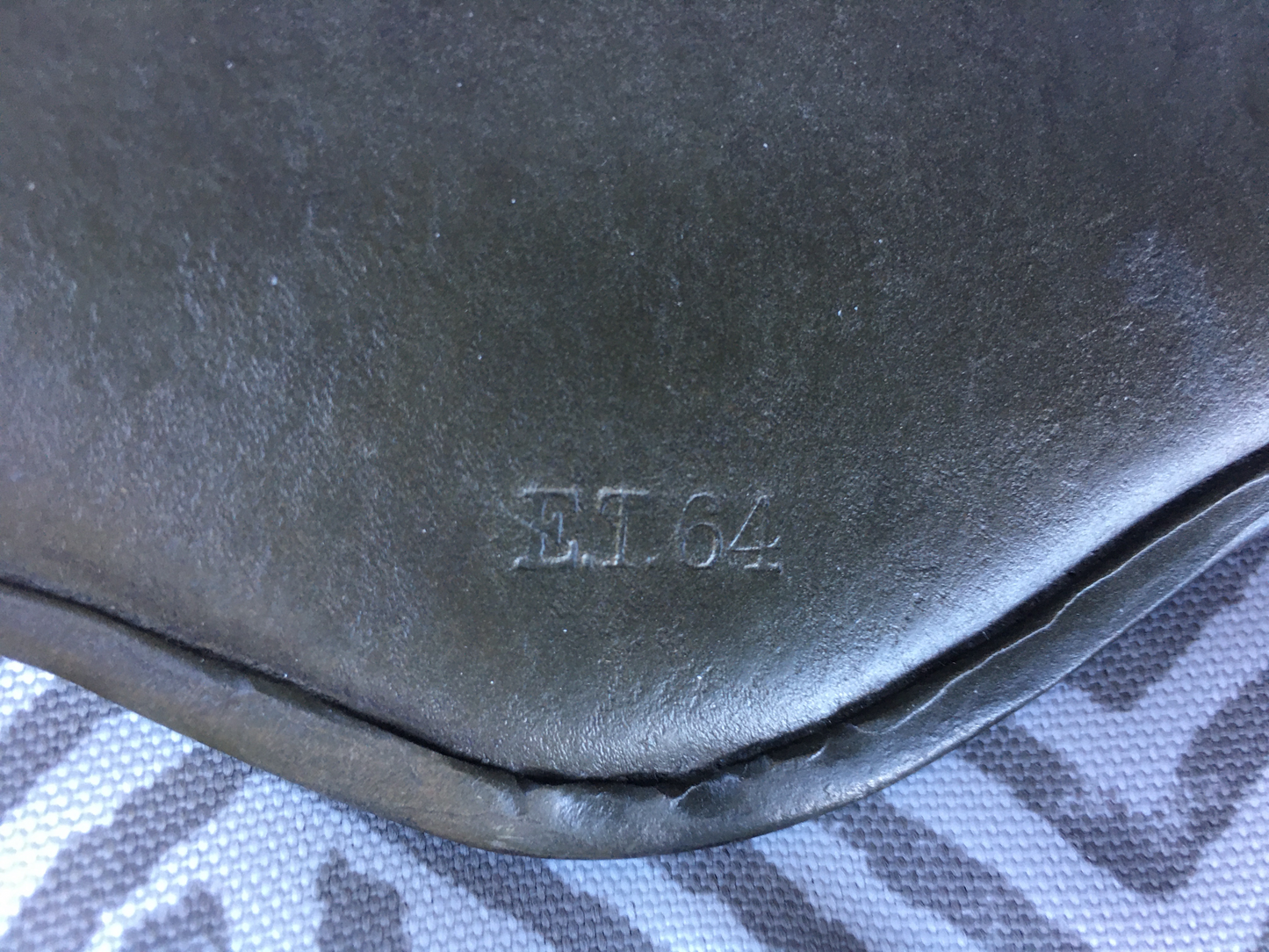Medieval & Military Treasures
WW1 German M18 “Ear-Cut” Helmet – Late War ET64 Production
WW1 German M18 “Ear-Cut” Helmet – Late War ET64 Production
Couldn't load pickup availability
A fascinating late-war German M18 helmet, featuring the distinctive ear-cutout design, produced exclusively by ET in size 64. According to Ludwig Baer’s comprehensive research, these helmets were issued in August 1918, just two months before the Armistice, with a total run of only 100,000 pieces. Contrary to common belief, the design was not intended solely for cavalry or radio operators, but rather to help trench-bound soldiers better hear incoming fire while in the field.
The helmet retains all original features, including white chromium-tanned liner, matching split pins, and the original carbide metal hook chinstrap, dated 1918. The inside dome shows a heating lot code “BD579F” (Stahlwerk Becker, Kiefeld) and a production control number “5RR5” at the rear, offering clear provenance and factory traceability.
Key Features
- Model: M18 German Ear-Cut Helmet
- Maker/Size: ET64, exclusive late-war production
- Paint & Finish: Original wartime finish; inside paint clean, showing no tampering with ET64 stamp
- Liner & Chinstrap: Original chromium-tanned white leather liner; original carbide hook chinstrap intact
- Rivets: All three split pins original and matching
- Condition: Excellent untouched battlefield condition for a late-war piece
Collector’s Analysis
- Rarity Factor: Extremely rare, with limited production and only issued in the last months of the war. Ear-cut helmets are highly sought after by WW1 collectors.
- Historical Context: The M18 ear-cutout design represents the German Army’s attempt to improve situational awareness in trench warfare. Its late introduction means very few saw active service.
- Display Potential: A museum-quality example for collectors of late WW1 German helmets or specialized ear-cut variants.
Provenance & Notes
While many fake M18 ear-cut helmets exist, original examples can be verified by the correct scallop slope, clean ET64 Gothic font stamping, and authentic heating lot codes. The chromium-tanned liner is indicative of late-war production, providing superior durability in damp trench conditions compared to earlier vegetable-tanned leather.
Share
































